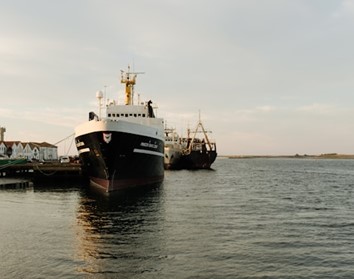The Port of Seattle, a major gateway for trade and commerce in the Pacific Northwest, plays a pivotal role in the economic vitality of the region. As a bustling hub for maritime and aviation operations, it is not only a critical infrastructure asset but also a significant source of employment. The Port’s labor and job creation initiatives are designed to foster economic growth, create high-quality occupations, and ensure sustainable development. Ryan Calkins, Port of Seattle Commissioner delves into these initiatives, highlighting the Port’s commitment to workforce development and community prosperity.
Economic Impact and Employment Opportunities
The Port of Seattle encompasses Seattle-Tacoma International Airport (Sea-Tac), the Seattle Seaport, and various real estate holdings. Together, these assets support a wide range of industries, including transportation, logistics, manufacturing, and tourism. The Port’s operations both directly and indirectly support tens of thousands of jobs in the region, making it a cornerstone of the local economy.
One of the primary goals of the Port is to create good-paying jobs that provide economic security for workers and their families. The Port’s strategic plans emphasize job creation across multiple sectors, with a particular focus on sustainable and equitable growth.
Workforce Development Programs
The Port of Seattle is proactive in developing a skilled workforce to meet the needs of its diverse operations. Several key programs underscore its commitment to workforce development:
Youth Maritime Collaborative
The Youth Maritime Collaborative is an initiative aimed at introducing young people to careers in the maritime industry. This program provides internships, job shadowing opportunities, and mentorships to high school and college students. By partnering with local schools and maritime organizations, the Port is helping to cultivate the next generation of maritime professionals.
Aviation Career Pathways
To support the growing demands of Sea-Tac Airport, the Port of Seattle has developed the Aviation Career Pathways program. This initiative focuses on training and placing workers in various aviation-related roles, such as baggage handling, customer service, and aircraft maintenance. The program offers vocational training, certifications, and job placement assistance, ensuring a steady pipeline of qualified candidates for the aviation sector.
Construction Apprenticeship Programs
The Port’s extensive infrastructure projects create numerous opportunities in construction and related trades. Through partnerships with labor unions and trade organizations, the Port supports apprenticeship programs that provide hands-on training and job placement in the construction industry. These programs are designed to equip workers with the skills needed to succeed in well-paying, long-term careers.
Diversity in Contracting
The Diversity in Contracting program aims to increase the participation of women- and minority-owned businesses (WMBEs) in Port contracts. By setting ambitious goals for WMBE participation and providing support to these businesses, the Port is fostering a more inclusive economic environment.
Priority Hire Program
The Priority Hire Program focuses on hiring workers from economically disadvantaged areas for Port construction projects. This initiative not only helps to alleviate poverty in these communities but also ensures that local residents benefit directly from the area’s development projects.

Workforce Development Grants
The Port also provides grants to non-profit organizations and educational institutions that deliver workforce development services. These grants support training programs, job placement services, and other initiatives that help individuals, particularly those from disadvantaged backgrounds, gain the skills and experience needed to secure employment.
Environmental Stewardship and Green Jobs
Sustainability is a core value of the Port of Seattle, and this commitment extends to its job creation efforts. The Port is investing in green infrastructure and environmentally friendly technologies, which in turn create green jobs.
Clean Energy and Technology
The Port is a leader in the adoption of clean energy and advanced technologies. Initiatives such as electrifying port operations, improving energy efficiency, and reducing emissions create jobs in engineering, technology, and environmental science. These green jobs are essential for the Port’s efforts to achieve its environmental goals.
Sustainable Aviation Fuels
Sea-Tac Airport is at the forefront of efforts to develop and implement sustainable aviation fuels (SAFs). The transition to SAFs not only reduces the environmental impact of air travel but also supports job creation in the renewable energy sector.
Conclusion
The Port of Seattle’s labor and job creation initiatives reflect its commitment to economic growth, workforce development, and community well-being. By fostering a skilled and diverse workforce, promoting equity and inclusion, and investing in sustainable practices, the Port is ensuring that its economic impact benefits all members of the community. These efforts not only enhance the Port’s operations but also contribute to the long-term prosperity of the region. As the Port of Seattle continues to grow and evolve, its dedication to creating high-quality jobs and supporting workforce development remains a cornerstone of its mission.
